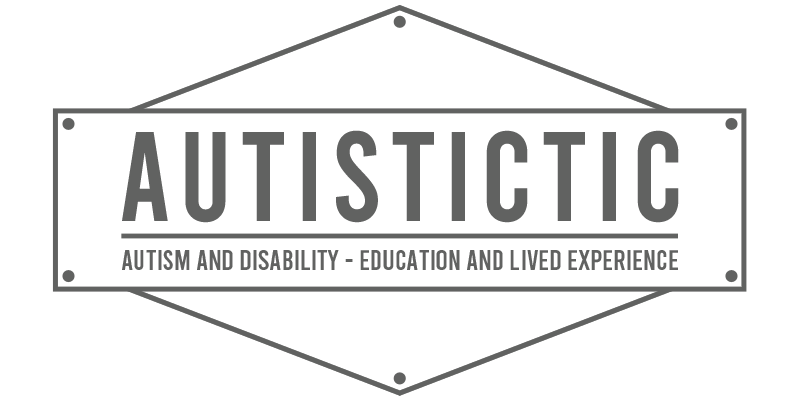HOME » BLOG » NAVIGATING A PANDEMIC WHILE AUTISTIC

NAVIGATING A PANDEMIC WHILE AUTISTIC

Extraordinary times require extraordinary measures. This is indeed true for many situations, including the current COVID-19 pandemic. The government has thus put infection prevention measures into place. Additionally, the public is supposed to follow infection prevention guidelines.
Situations like the current pandemic affect all of us way beyond government measures and public guidelines. This can be especially difficult to navigate for autistic people. As a result, distress reactions like increased stimming, shutdowns, meltdowns, and self-harm are likely. Let’s take a look at which problems autistic people may face, and what can help.
Please note that this piece addresses autistic people directly. It can, however, be just as helpful for non-autistic people who want to help autistics.
LOSS OF CONTROL
The chaos and overwhelm autistic people have to deal with on an everyday basis is a lot. Most of the ways in which we cope with this come down to controlling that chaos. But what if what happens around us and to us is out of our control? This can be a source of great distress. MAYBE THIS CAN HELP…
FIND THINGS YOU CAN CONTROL
Think about the things you can’t control that distress you.
Now break them down into all their tiny parts.
Are there parts about them you can control? Control those!
Think about things unrelated to what you can’t control.
Remind yourself of all the things in your life you can control.
Notice things you can control that you hadn’t noticed so far.
It can be helpful to make a list of the things you can control. You can then check that list whenever the loss of control overwhelms you. It can remind you that you still have some control. It can also give you prompts for things to do to give you some sense of control back.
COPE WITH THE DISTRESS FROM LOSS OF CONTROL
It’s good to find things we can control. However, we also need to cope with the things we can’t control. It can be helpful to create a list of things that help you cope. You can then refer back to this list at any point. If you struggle remembering that such a list exists, displaying it somewhere you regularly see it can help. You can also set yourself reminders to check your list, for example on your phone.
OVERWHELM
There is a lot going on right now. Autistic brains are already constantly in danger of being overwhelmed, but even more so now. MAYBE THIS CAN HELP…
ONE STEP AT A TIME
I know planning, organizing, and prioritizing can be incredibly difficult for autistic people due to Executive Dysfunction. But do your best to not try and take on everything at once.
Make a list of everything that is an issue for you. You can do this in digital or analog form. For digital options, you can use an app, word, text editor, send yourself messages on your phone, etc. For analog options, you can use a simple piece of paper and a pen, a planner, a whiteboard, sticky notes on your fridge, etc. Keep your list readily available so you can add to it whenever something comes up.
Once you got your list started, pick one item from the list and deal with it whenever you can and want. Solve one problem at a time. Take one step at a time. Do one task at a time.
TAKE BREAKS
While working off a list is great, don’t forget to take breaks. What you are dealing with can be tiring. Fill your breaks with things that help you cope. Things that soothe you, ground you, relax you, bring you joy, distract you. And don’t forget to eat, drink, sleep, and take your medication.
CHANGE
Autistic people tend to need routines and sameness to cope with the world. During a pandemic, schools, daycares, work, day programs, therapies, sports clubs – all the things that usually give autistic people routine and structure suddenly disappear. These changes can cause us severe distress. MAYBE THIS CAN HELP…
KEEP AS MANY ROUTINES AS POSSIBLE
Break large routines into their smaller parts, and see which might be possible to keep up.
EXAMPLES
LOST ROUTINE: Schools are closed.
FOUND ROUTINE: Continue getting up at the same time, getting ready, eating breakfast, doing schoolwork, taking breaks at the same time as at school, having lunch at the same time as in school, etc.
LOST ROUTINE: No more lunch at work.
FOUND ROUTINE: Have lunch at the same time as at work and make the same meals as at work.
LOST ROUTINE: Weekly therapy visits are cancelled.
FOUND ROUTINE: “Go to” therapy on the same day and time, with the same therapist, but now it’s on a video call instead of in person.
CREATE NEW ROUTINES
Any change in routine may be very difficult for most autistic people. Keeping parts of routines up as much as possible can help. However, keeping routines up isn’t always possible. Then creating new routines instead of just winging it can make it easier.
A daily schedule can help with this. Create routine blocks that stay the same each day. Having a daily morning, lunch, and evening routine can already help alleviate the distress from the loss of regular routines.
Adding more routine blocks during the day can provide enough structure to cope. Some possible routine blocks to put into a daily schedule are cleaning time, special interest time, virtual social contact time, pet care time, and exercise time.
USE SAMENESS TO ALLEVIATE DISTRESS
Whenever there is no way around change, alleviating it with sameness can help. Luckily, sameness doesn’t just lay in our routines. The comfort and grounding of sameness can also come from:
– clothing
– food and drink
– listening to, watching, reading things
– comfort items
– special interest
– social media
– virtual contact with friends and family
– pets
– stimming
UNCERTAINTY
Certainty helps autistic people cope. Knowing things for sure provides a stable framework around which to build one’s life. Around which to function. When this framework is taken away, autistic people often fall into an involuntary, uncontrollable spiral of chaotic thoughts, anxiety, and distress.
So much is still unknown about the new virus. Public guidelines and government measures keep changing. Misinformation is spreading online. All of this leaves autistic people with a lot of uncertainty. MAYBE THIS CAN HELP…
GET YOUR INFORMATION FROM OFFICIAL, TRUSTWORTHY SOURCES
Having sources for information that you know you can trust without second-guessing provides some certainty in uncertain times. My go-to safe source is the WHO. Determining which sources are trustworthy does present its own case of uncertainty, which is why I am only suggesting the one I feel is definitely safe here.
ACTIVELY AVOID QUESTIONABLE SOURCES OF INFORMATION
On social media, you may want to mute words pertaining to the current situation. You can mute and/or block people who spread unconfirmed information. Don’t browse the internet randomly, taking in anything and everything you can find. Only watch reputable news channels.
REASSURANCE
Simply getting information may not be good enough for many autistic people. We may also need reassurance about the information we got.
Autistic people may need to:
– get the same information from several different sources to validate it
– research every bit of information about the current situation we can find
– continuously check sources to see whether our information is [still] correct
– ask and get answers to the same questions over and over again
– repeat information we have over and over, to ourselves or others
– research every bit of information about the current situation we can find
ANXIETY
Loss of control, overwhelm, change, and uncertainty cause many autistic people anxiety. Such anxiety is certainly understandable and valid. However, to minimize anxiety as much as possible, it’s also important to have options for countering anxiety. MAYBE THIS CAN HELP…
Physically counter anxiety
– with stimming, exercise, movement, and medication.
Cognitively counter anxiety
– with logic and factual information.
Mentally counter anxiety
– with grounding techniques, mindfulness, and distraction.
Emotionally counter anxiety
– with support from friends and family, pets, and online support.
SUPPORT
Lots of autistic people will need support to get through difficult times. Because of that, it’s important to know which support is available for you. Please don’t hesitate to use it as needed. Whether your support comes from family members, friends, professionals like healthcare providers or carers, social media, or elsewhere – as long as it helps you, it’s good.
Please know that at the very least the autistic online community is there for you. You can find us on Twitter via #AskingAutistics and #ActuallyAutistic. We are in this together, even in times when you might feel all alone. We got you.

Leave a Reply